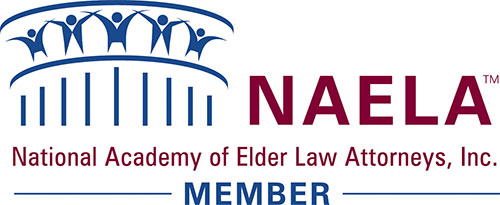It is natural to want to protect our loved ones no matter what. However, you may be finding it difficult to provide a prosperous future for your loved one if that person will be, is, or has been incarcerated. Unfortunately, this event will forever change your loved one’s life, but with the right planning, you may still be able to provide the kind of future you envision for your loved one.
What You Should Not Do
When crafting an estate plan for you and your loved one, it is important to do it properly. The most important thing to remember is that you should not leave any money or property outright (directly to) your loved one. If money or property is given directly to your loved one, those accounts or pieces of property will be deemed to be owned by your loved one and may be subject to any outstanding fines, costs, restitution, or other charges associated with your loved one’s incarceration. If your goal is to make sure that your money and property are used for the benefit of your loved one and not for expenses incurred due to the incarceration, you need to do the proper planning.
What You Should Do
To adequately protect yourself, your accounts and property, and your loved one, the first thing you need to do is put an estate plan in place. If you do not create an estate plan, the probate court will use its default estate plan. This means that your accounts and property will be distributed according to state law, not your wishes. The state law will dictate
- who will receive your money and property (usually your spouse and children, or your parents if you do not have a spouse or child),
- how much the individuals will receive, and
- when those individuals will receive the money and property (typically as soon as the probate proceeding is done).
If you have a minor child, this distribution plan can be exceptionally harmful because the money or property left to your child will have to be managed by a court-appointed adult (possibly a stranger), and the child will receive the balance of any money and property when the child reaches the age of majority (eighteen or twenty-one years old depending on state law) with no strings attached. After receiving the money, your new adult could spend the entirety of your hard-earned money and property on a wild trip to Atlantic City or could be swindled out of it by a malicious predator.
Secondly, when creating your estate planning, work with an experienced estate planning attorney. While it may seem easier to use a DIY solution found online, an experienced estate planning attorney will ask you specific questions and follow-up questions to best understand your true wishes and family dynamics, explain the available planning options, answer any additional questions you may have, and be a trusted advisor through all stages of your life (and possibly those of your loved ones).
One legal strategy that may be beneficial is using a discretionary trust for any money or property you would like to leave to your incarcerated loved one. A discretionary trust is a trust in which the trustee (the person or entity you have chosen to be in charge of managing, investing, and handing out the money and property) uses the trustee’s discretion as to when distributions of money or property are made to or for the benefit of your chosen beneficiary (your incarcerated loved one). Because your loved one will not be guaranteed a specific amount of money or piece of property, the funds will be better protected from any creditors, predators, or a divorcing spouse that your loved one may have.
A discretionary trust can be set up as its own separate legal entity, or it can be used as part of your revocable living trust, whichever makes the most sense for your planning needs. It is important to work with an experienced estate planning attorney to ensure that the trust is structured in a way that best protects the accounts and property owned by the trust from the specific costs, fees, and orders associated with your loved one’s incarceration. Because state laws can vary regarding the payment of fines, costs, restitution, and other charges associated with your loved one’s incarceration, an experienced attorney can help make sure you use the right strategy for your unique situation. Choosing the right trustee for the discretionary trust is important and must be done carefully. Consider the person’s ability and availability to carry out the responsibilities of being a trustee and make sure to provide clear guidelines for the trustee to consider when looking to use the trust funds for the benefit of your loved one.
Additional Considerations for Your Estate Plan
A comprehensive estate plan can include several different documents: last will and testament, revocable living trust, financial power of attorney, medical power of attorney, living will or advanced directive, and HIPAA authorization form. As part of these documents, you will need to name several different trusted individuals to act on your behalf. Depending on your relationship with your loved one and the length of your loved one’s incarceration, you may be tempted to appoint your loved one to one of the following important roles in your estate plan. Before doing so, you need to carefully consider the duties and responsibilities for each role and inform your estate planning attorney of your loved one’s status, as it may impact your loved one’s ability to serve in that role.
Personal representative: This trusted individual is appointed in your last will and testament and is responsible for collecting all of your accounts and property, paying your outstanding debts, and distributing your money and property to those you have named upon your death. This person is tasked with winding up your affairs, which can be a time-consuming role. It is important to note that some states prohibit a felon from serving in this position, so you will want to determine whether or not your loved one would even be allowed to serve before you make such an appointment. This is also a good reason to make sure that you name a backup personal representative in case your first choice is not able to serve, for whatever reason.
The agent under a financial power of attorney: This is the individual chosen to carry out financial transactions (such as signing a check or opening a bank account) on your behalf. The duration and scope of the agent’s authority are specified in the financial power of attorney. Depending on your state’s laws, you may be free to choose someone with a criminal record to act on your behalf, but depending upon the nature of the individual’s crime, you may want to consider whether your loved one is the appropriate choice. Can you trust this individual to make financial decisions that are in your best interest? Will choosing this individual cause fighting among your loved ones and unnecessary court challenges if you become incapacitated and your agent is now making decisions on your behalf without your oversight? When choosing someone to serve in a role such as this, it is important not to let stereotypical notions, such as always picking the oldest child, deter you from choosing the right person for the job.
Guardian for your minor child: If your minor child’s other legal parent is still alive and can care for your child, the other parent will continue to provide care or will assume the caregiver’s day-to-day responsibilities. However, if you are the only living parent, or if the other legal parent is unfit to care for your minor child, a guardian will be needed. Because your designation of a guardian in a will or separate writing is a nomination, a judge will still need to determine whether the person you have chosen is fit to care for your minor child. Depending on state law, someone with a criminal background might not be automatically disqualified, but a judge could weigh this factor heavily if other family members are opposing the nomination of your loved one with a criminal background. Ultimately, the judge will make a decision that is deemed to be in the child’s best interest.
The agent under a medical power of attorney: If you cannot communicate or make medical decisions, someone else will have to do it for you. By naming an agent under a medical power of attorney, you are able to dictate who has the authority to do so instead of having a judge make that decision. Although someone with a criminal background can serve as your medical decision-maker, you will want to make sure that this individual will be available to make those decisions on your behalf whenever the need may arise. If your loved one’s ability to travel is restricted, could these limitations impact your loved one’s ability to be by your side and be your medical advocate?
Protecting Your Family As You Wish
Having a loved one in trouble with the law is never easy. We are here to help you protect yourself, your money, and your property, and to provide the type of future you want for your loved one. If you have any questions or would like to discuss next steps for crafting an estate plan that meets your family’s unique needs, please give us a call. We are available for in-person or virtual consultations, whichever is more convenient for you.







